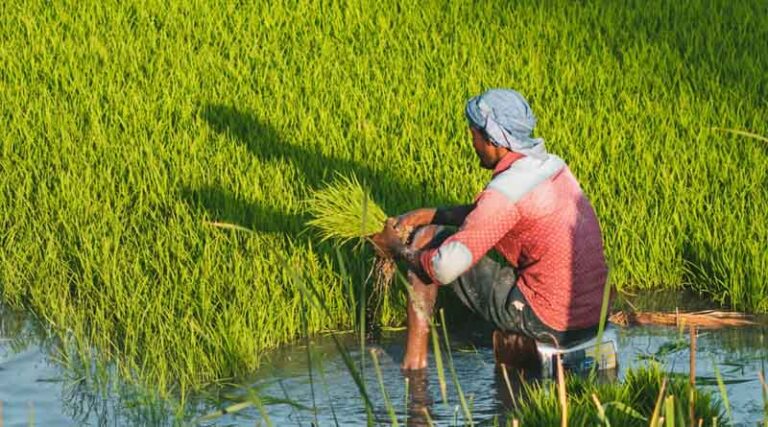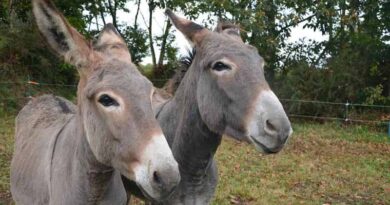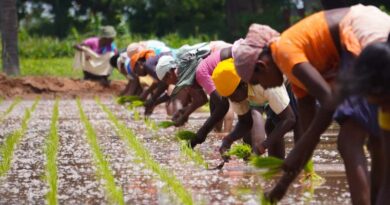
Ensuring Basmati Purity: Punjab’s Ambitious BasmatiNET Initiative Gains Momentum
27 June 2025, Chandigarh: Months after agricultural leaders laid the groundwork for a revolutionary traceability system, Punjab’s Basmati rice sector stands on the brink of transformation. The proposed BasmatiNET initiative, modeled after the successful GrapeNET framework, promises to safeguard India’s premium rice exports while addressing growing international concerns about food safety and pesticide residues.
From Crisis to Solution: The Genesis of BasmatiNET
The urgency for this system became clear during last April’s landmark workshop at Kheti Bhavan in Chandigarh, where Dr. Kaushik Banerjee of ICAR-National Research Centre for Grapes shared sobering lessons from India’s grape export history. “When European markets threatened to ban Indian grapes in 2003 due to pesticide issues, we responded with GrapeNET – a digital traceability system that saved our exports,” he explained. “Today, Basmati faces similar challenges that demand equally robust solutions.”
This warning resonated across Punjab’s agricultural community. With Basmati rice exports generating billions annually but facing increasing scrutiny abroad, stakeholders recognized the need for systemic change. Jaswant Singh, Director of Punjab’s Agriculture Department, revealed that preliminary trials in Chugawan village demonstrated traceability’s potential. “Our pilot project showed we can track Basmati from seed to shipment,” he said. “Now we must scale this across Punjab.”
Building the Digital Backbone of Agricultural Trade
The proposed BasmatiNET system represents a technological leap for Punjab’s farming sector. At its core, the program will create an unbroken digital chain connecting every participant in the Basmati supply network. Farmers will register their plots with geotagged identifiers, while laboratories, mills, and exporters will feed testing data into a centralized platform monitored by the Punjab Biotechnology Incubator (PBTI).
Dr. (Mrs.) Ajit Dua, CEO of PBTI, emphasized the infrastructure investments already underway. “We’ve doubled our testing capacity and are establishing a new lab in Jalandhar,” she said. “When BasmatiNET launches, any of India’s 48 accredited labs will be able to verify compliance, eliminating bottlenecks.”
The system’s design addresses critical pain points in agricultural exports. Real-time monitoring will flag pesticide violations before shipments depart, while blockchain technology will create tamper-proof records for international buyers. This transparency aims to prevent the costly rejections that have plagued Indian food exports in recent years.
Voices from the Field: Farmers, Scientists, and Exporters Weigh In
The initiative has sparked vigorous discussion across Punjab’s agricultural ecosystem. At PAU, researchers like Dr. Satbir Singh Gosal are developing new Basmati varieties that align with traceability goals. “Our climate-resilient strains require fewer chemical interventions,” he noted. “When combined with BasmatiNET’s monitoring, this means safer rice and happier importers.”
Exporters highlight the commercial imperative. Vikram from LT Foods described the logistical nightmare of navigating conflicting international standards. “A pesticide approved in America may be banned in Europe,” he said. “Without systems like BasmatiNET, farmers gamble every time they treat their crops.”
Yet concerns persist among growers. Smallholders worry about added costs, while industry groups like CropLife India caution against blanket pesticide bans. “We must balance safety with practicality,” argued Durgesh Chandra, the organization’s Secretary General. “Farmers need clear guidelines, not constant regulatory whiplash.”
Navigating the Implementation Challenge
As Punjab transitions from planning to execution, several hurdles loom large. The state must reconcile differing international safety standards, with Dr. Mandeep Singh Hunjan of PAU noting that “meeting the EU’s 0.01 ppm residue limit means operating at one-tenth of what other markets allow.”
Infrastructure presents another challenge. While GrapeNET handles about 200,000 metric tons annually, Basmati exports exceed 4 million tons. Scaling the system to this volume will require significant investment in testing facilities and digital connectivity across rural Punjab.
Perhaps most crucially, the program’s success hinges on farmer buy-in. “Traceability only works if every grower participates,” emphasized Harpreet Singh of APEDA. “We’re launching training programs to show how this protects their livelihoods.”
Industry Outlook
Mr. Durgesh Chandra, Secretary General, CropLife India shared that CropLife India has been advocating for the establishment of a Basmati Research Centre in Punjab since 2020—adopting best practices from GrapeNET. This centre aims to offer a collaborative platform for farmers, scientists, policymakers, industry, and exporters—ensuring Punjab remains a trusted and leading source of authentic Basmati rice.
The crop protection industry was present in full fervour with representatives from Bayer, BASF, Corteva Agri Sciences, Crystal Crop Protection, Dhanuka Agritech, Indofil, PI Industries, Rallis, Swal, UPL, Syngenta, T-Stanes to name a few. Ms. Nirmala Pathrawal from CCFI and Mr. Kalyan Goswami from ACFI were present and shared their willingness to collaborate in this initiative.
Implementing Traceability
With a joint task force now coordinating efforts between government agencies, research institutions, and private enterprises, Punjab’s agricultural leadership appears committed to seeing BasmatiNET through. Near-term priorities include study visits to GrapeNET facilities in Pune and expanded pilot testing in selected cultivation zones.
As Dr. Banerjee reflected during the April workshop, “When grapes faced crisis, collaboration saved our exports. Today, that same unity can secure Basmati’s future.” With global food safety standards tightening annually, Punjab’s race to implement comprehensive traceability may well determine whether India maintains its hard-won position as the world’s premier Basmati supplier.
For now, all eyes remain on the coming harvest season, as the first large-scale trials of this ambitious system begin translating policy into practice across Punjab’s golden rice fields.
Also Read: Five Indians Recognized in 2025 Top Agri-Food Pioneers List by World Food Prize Foundation
📢 If You’re in Agriculture, Make Sure the Right People Hear Your Story.
Have a story the global agriculture industry should hear? From product launches to strategic announcements, Global Agriculture offers unmatched visibility across international agri-business markets. Connect with us at pr@global-agriculture.com to explore editorial and advertising opportunities that reach the right audience, worldwide.






